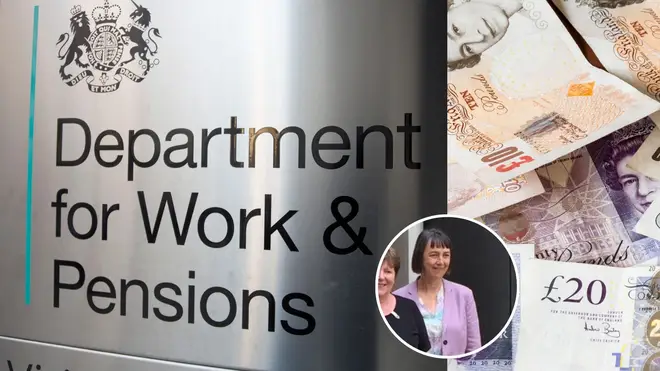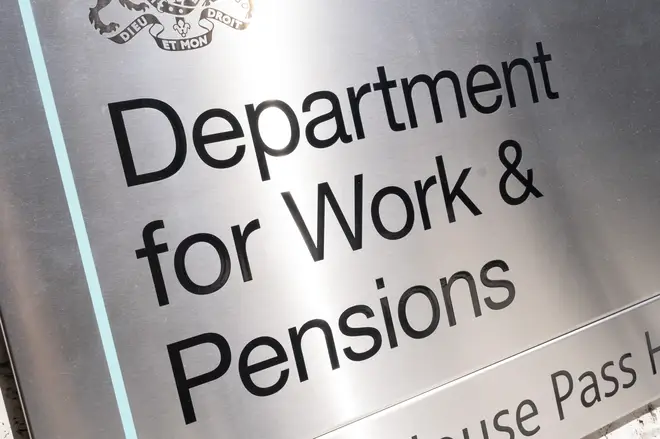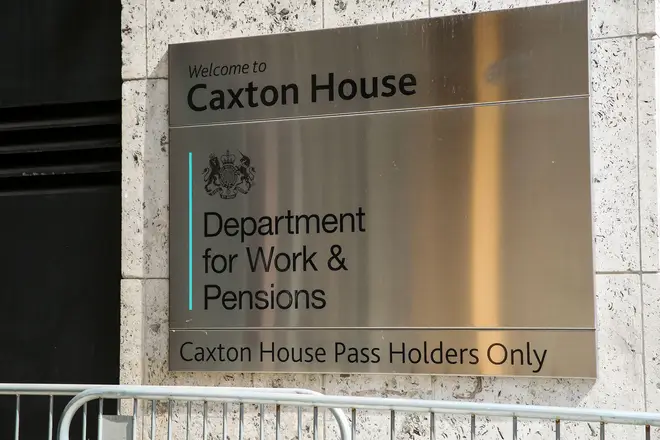
Shelagh Fogarty 1pm - 4pm
18 April 2024, 14:29 | Updated: 18 April 2024, 14:37

The daughter of a 92-year-old woman with advanced Parkinson’s and dementia has slammed the "outrageous" decision to repay more than £7,000 to the DWP over an error five years ago.
Rose Chitseko told The Guardian her mother, who turns 93 in April, has been ordered to pay more than a third of her life savings – after she failed to notify it about a change in her circumstances when she was in the early stages of dementia.
In 2019, Ms Chitseko began receiving £64.60 a week in carer’s allowance to look after her 88-year-old mother when she became unable to care for herself.
The Department for Work and Pensions’ (DWP) rules state the grandmother-of-four should have informed them at this point that she was no longer eligible for the severe disability premium part of the pensions credit she received. But because of her illness, she didn't.

Ms Chitseko, a former adult social care worker, said it wasn't "realistic" of her to notify the DWP.
“She’d had Parkinson’s for seven years. We were setting up power of attorney because she was already losing her grip on her ability to manage her affairs.”
In 2022, the DWP contacted Ms Chitseko’s mother – who had deteriorated further – to say that she had been overpaid more than £8,000 in pensions credit and would have to pay it back.
With the help of the Harlow Advice Centre, Ms Chitseko appealed against the penalty and asked the government to use its discretion to write off the debt as her mother “wasn’t in a fit state to notify them and didn’t realise she had to notify them”.
The final bill was reduced slightly to £7,135.08 to cover the period when carer’s allowance was being received, rather than when it was applied for, but that was the DWP’s only concession.
“It just so outrageous, really, that they choose to persecute a frail, sick old woman for what to them is a relatively small amount – for something that she was not capable of managing,” said Chitseko.
“When the super-rich get away with millions, it’s the injustice of it, the unfairness of it. It’s just really upsetting and frustrating”.
Ms Chitseko’s mother, a former laboratory technician, is paying off the DWP penalty from her £20,000 life savings and in £600 chunks from her monthly pension.
Ms Chitseko said she could not bring herself to tell her mother what the DWP had ordered.
“I felt she couldn’t deal with it,” she said.
“For her, £7,000 is a huge sum. She’s from the wartime generation, where £100 is a lot.“If she knew that this amount of her life savings was being asked for … From her point of view, she would feel as if she was the guilty party. It would be extremely upsetting.”
After being contacted by the Guardian, the DWP said it was “reviewing this case as a matter of urgency” and had suspended repayments.
It added: “When recovering overpayments, we carefully balance our duty to protect the public purse with helping individuals manage their repayments – with strong safeguards in place.”

Earlier this month, the government faced criticism after seizing a woman’s £16,000 inheritance because she was overpaid her carer’s allowance while looking after her mum.
Vivienne Groom, 59, was prosecuted for failing to declare her minimum wage job at the Co-op while also caring for her mum over five years.
Ms Groom said she was told by a social worker she did not have to declare the income to the Department for Work and Pensions (DWP).
However, after the DWP discovered she had a job at the store in Tarvin, near Chester, she was ordered to pay back £16,800.
Read more: Brexit has ‘exacerbated’ UK drug shortages with supply 'broken', research finds